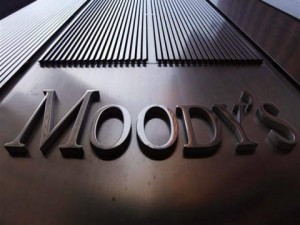Moody’s: PR banks buffers improved vs. recession


Moody’s says Puerto Rico’s weak economic growth outlook will remain a constraint on the banks’ ability to materially improve their asset quality and earnings.
Moody’s-rated Puerto Rican banks, Banco Santander Puerto Rico, Banco Popular de Puerto Rico and FirstBank Puerto Rico have improved their capitalization, reserves and core funding in the face of protracted economic recession in the Commonwealth of Puerto Rico, Moody’s Investors Service said in a new report released Thursday.
On Feb. 8, Moody’s affirmed the ratings of BSPR ((BSPR, A2/Baa2 stable, ba3), Popular (Ba2/B2 stable, b1), and FirstBank (B1/Caa1 stable, b3), and changed the outlook on the latter two banks to stable from negative, reflecting the three banks’ success in improving their financial buffers against Puerto Rico’s economic recession which began in 2004. The Commonwealth is rated Caa3 developing.
Moody’s believes that Puerto Rico’s recession will abate in 2017 and 2018, helping to reinforce the improvements the three banks have made that strengthens their capacity to absorb credit losses.
Under Moody’s adverse stress scenario the banks’ capital levels stay above the minimum regulatory requirements for CET1 and capital conservation buffer of 7 percent.
“The three banks have been reducing their exposure to credit risk since 2011, which has helped boost their capitalization and liquidity,” according to Jeanne Del Casino, a Moody’s vice president, senior credit officer.
The banks have cut their loan and securities exposures to the debt-stretched Puerto Rican government and other public-sector entities, and have shifted their loan mix away from higher risk segments, lending more selectively to private-sector customers, she said.
“Problem loans remain high, but have declined and leveled off since a 2011-12 peak,” Del Casino added.
Moody’s said the rated banks have also strengthened their funding and liquidity by increasing the proportion of their stable core deposits in their funding mix.
In so doing they have reduced their reliance on confidence-sensitive wholesale funding, particularly brokered deposits.
Moody’s believes that the increased legal and fiscal certainty created by the June 2016 Puerto Rico Oversight, Management and Economic Stability Act, should help ease the severity of Puerto Rico’s recession and improve the business climate and investor confidence.
That said, Puerto Rico’s weak economic growth outlook will remain a constraint on the banks’ ability to materially improve their asset quality and earnings, the agency noted.
Although there is a risk that non-performing assets will rise as long as the economy continues to contract, the banks’ less risky loan mix and lower loan volumes will provide a buffer against losses returning to prior peak levels, said Moody’s.
NPLs arising from any debt restructuring of Puerto Rico’s central government or its related entities would increase ratios only modestly as the banks have reduced their exposure to these entities.














